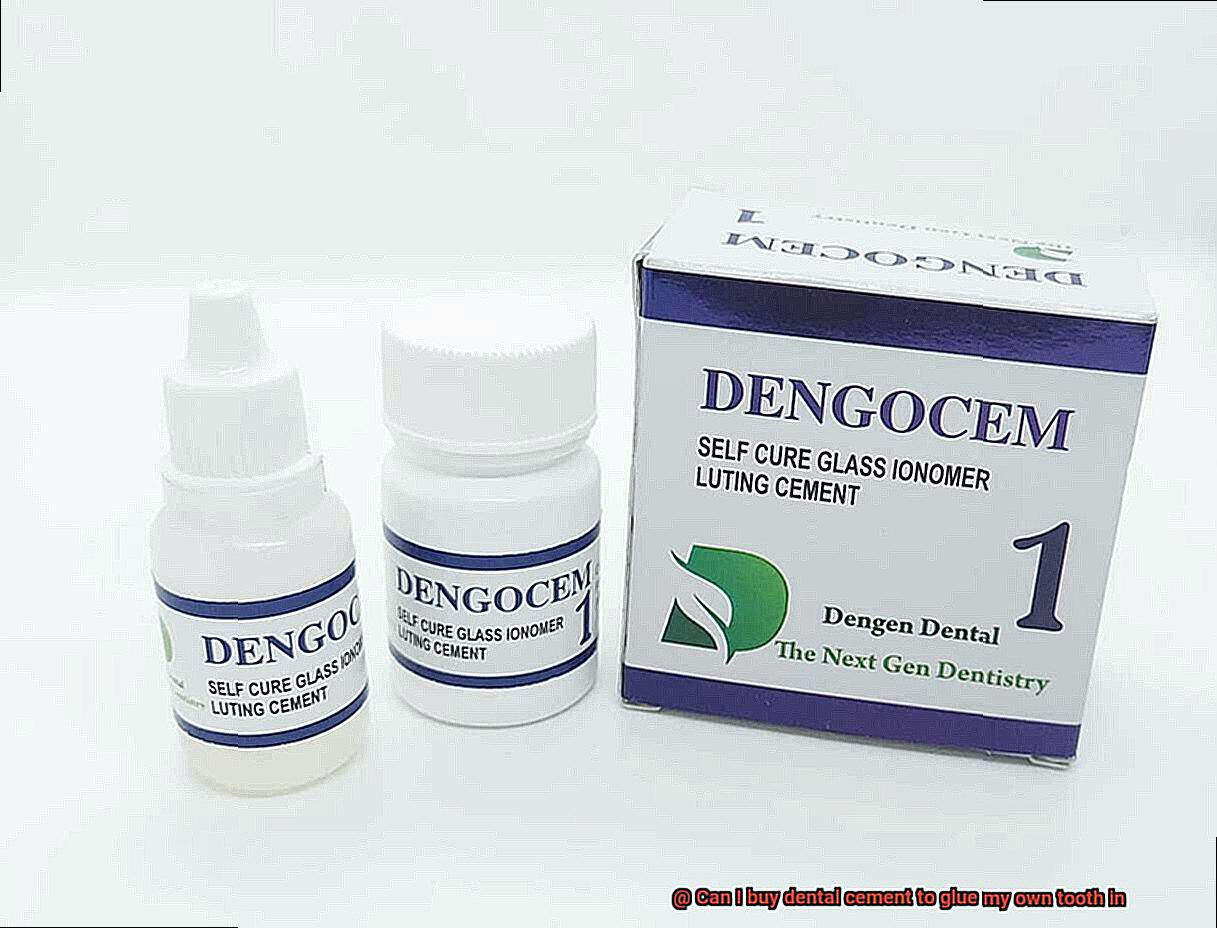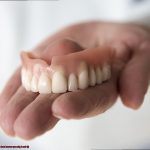They have the knowledge, expertise, and tools necessary to provide you with the best possible care and ensure a long-lasting solution for your dental needs. Remember, your smile is precious, and taking the DIY approach with dental cement may not be the most effective or safe option in the long run.
So, don’t hesitate to reach out to a dentist who can guide you through the proper treatment process and help restore your confident smile.
What is Dental Cement?
Contents
Dental cement is a crucial adhesive material used in dentistry for a range of purposes. It is a versatile substance that effectively bonds dental restorations such as crowns, bridges, and veneers to natural teeth or dental implants. Dental cement also plays a vital role in securing orthodontic brackets and bands during orthodontic treatment.
There are several types of dental cement available, each with distinct properties and applications. These include zinc oxide-eugenol (ZOE) cement, glass ionomer cement (GIC), resin-modified glass ionomer cement (RMGIC), and resin cement.
ZOE cement, one of the oldest and most widely used types, is temporary and commonly employed for provisional or temporary restorations. It possesses sedative properties, making it beneficial for sensitive or inflamed teeth or surrounding tissues.
GIC is a versatile dental cement with both adhesive and chemical bonding properties. It is created by mixing powdered glass with an acidic liquid to form a paste that hardens over time. GIC finds application in filling cavities in deciduous teeth, cementing metal or ceramic restorations, and sealing dental fissures to prevent tooth decay.
RMGIC is an improved version of GIC that incorporates resin components. The addition of resin enhances the mechanical properties and bond strength of the cement. RMGIC offers benefits such as good aesthetics, fluoride release, and adhesion to tooth structure.
Resin cement, primarily used for bonding restorations made from materials like porcelain or composite resin, is strong and durable. It provides excellent bond strength and aesthetics when used for dental crowns, bridges, inlays, onlays, and veneers.
It’s important to note that dental cement is not available over the counter for personal use. It is a specialized material used exclusively by trained dental professionals in clinical settings. Expert knowledge and skill are required for the successful application of dental cement to ensure proper bonding and long-term stability of dental restorations.
Should I Attempt to Glue My Own Tooth Back In?
Gluing your own tooth back in may seem like a tempting solution, especially if you’re experiencing pain or discomfort. However, it is important to understand that this is not recommended as a long-term solution. Here’s why:
- Lack of Proper Alignment: When attempting to glue your own tooth back in, aligning it properly with the surrounding teeth can be challenging. This can lead to an improper bite, which can cause additional oral health issues such as uneven wear on the teeth or jaw pain.
- Ineffective Bonding: Over-the-counter dental cement, although available for purchase, may not bond effectively to the tooth or surrounding dental structure. The dental cement used by dentists is specifically designed for strong and durable bonding. Over-the-counter options may not provide the same level of strength and durability.
- Risk of Further Damage or Infection: If the tooth is damaged or fractured, trying to glue it back in yourself can potentially cause more harm or infection. Dentists have the necessary knowledge and expertise to assess the condition of your tooth and recommend appropriate treatment options. Attempting to fix the problem yourself can delay proper treatment and worsen the situation.
- Delay in Professional Treatment: By attempting to glue your own tooth back in, you may postpone seeking professional dental care. This delay can lead to complications and further damage to your oral health. Dentists undergo extensive education and training to diagnose and treat dental issues accurately. They are best equipped to assess the situation and determine the most appropriate course of action.
The Application of Dental Cement
The application of dental cement is a complex and precise procedure in the field of dentistry that plays a crucial role in the successful placement and long-term stability of various dental restorations. Dental cement, specifically formulated for clinical use, is an adhesive material designed to fix dental restorations such as crowns, bridges, and veneers.
To ensure proper bonding and optimal results, the application process begins with meticulous preparation of the tooth surface. This involves removing any decayed or damaged tooth structure and shaping the tooth to accommodate the restoration. The dental cement is then mixed according to the manufacturer’s instructions, with the resin providing adhesive properties and the powdered material adding strength and stability.
Careful application of the dental cement follows, with excess cement being removed, and any gaps or voids being filled to achieve a tight fit between the restoration and the tooth. After allowing the cement to set and harden, any remaining excess material is polished and smoothed for a natural appearance and comfortable fit.
It is important to emphasize that seeking professional dental care for this procedure is essential. Dental cement used by dentists differs from over-the-counter adhesives or cements available to consumers. Professional dental cements are specifically formulated with properties suitable for clinical use in a controlled environment.
Furthermore, the application of dental cement requires precise techniques and knowledge of dental anatomy. Attempting to use dental cement without professional guidance can result in improper fit, poor aesthetics, and compromised oral health.
Potential Complications of DIY Tooth Glueing
DIY tooth glueing may seem like a convenient and cost-effective solution, but it comes with a host of potential complications and risks. The lack of professional expertise and knowledge in using dental cement correctly is one of the main concerns. Dental cement is a specialized material that requires precise application and careful handling. Without proper training and understanding, DIY users may not be able to achieve the desired results and could end up causing more harm than good.
Improper bonding of the tooth is one potential complication. Dental cement needs to adhere securely to both the tooth and the surrounding structure for effective restoration. If the cement is not applied correctly or if there are any gaps or air pockets, the bond may be weak, leading to a loose tooth or even complete failure of the restoration.
Another issue is the risk of infection. DIY tooth glueing involves manipulating oral tissues and working with open wounds or cavities. If proper sterilization techniques are not followed, there is a high risk of introducing harmful bacteria into the mouth, leading to infections such as gingivitis, periodontitis, or even abscesses.
DIY tooth glueing also carries the risk of damaging adjacent teeth. Dental cement can be sticky and difficult to control, especially for amateurs. Accidental spillage or excess cement can cause neighboring teeth to become stuck together, leading to further complications and requiring professional intervention to resolve.

Furthermore, attempting to glue a tooth without proper knowledge can result in misalignment and bite issues. Teeth need to fit together properly for optimal function and comfort. If a tooth is not aligned correctly during the gluing process, it can disrupt the natural bite pattern and cause discomfort, pain, or difficulty in chewing.
It is crucial to consider long-term effects when contemplating DIY tooth glueing. While dental cement may provide a temporary solution, it is not designed to be a permanent fix. The adhesive properties of dental cement may deteriorate over time, leading to further problems down the line. Additionally, DIY tooth glueing can mask underlying dental issues, such as decay or fractures, which may worsen if left untreated.
Where Can I Buy Dental Cement?
If you find yourself in need of dental cement for temporary solutions or emergencies, there are several reliable sources where you can purchase it. Here are some options to consider:
- Local pharmacies: Many local pharmacies carry temporary dental cements that can be used for short-term fixes. These cements are typically available over-the-counter without a prescription. Popular pharmacy chains like CVS, Walgreens, and Rite Aid may have dental cement in stock. To save yourself a wasted trip, it’s always a good idea to call ahead and check availability.
- Online retailers: The digital world offers a plethora of options when it comes to purchasing dental cement. Numerous online retailers, such as Amazon, eBay, and DentalMart, offer a wide range of dental cements, including both temporary and permanent options. However, be sure to exercise caution and only purchase from reputable sources. Read customer reviews and check for product approval by relevant dental authorities to ensure you are getting a reliable product.
- Dental supply stores: Although primarily catering to dental professionals, some dental supply stores also sell products to the general public. These stores provide a wider variety of dental cements, including those with stronger bonding capabilities for more long-term use. Henry Schein and Patterson Dental are examples of dental supply stores worth exploring. Keep in mind that certain products may require proof of professional credentials before purchase.
When purchasing dental cement, it is crucial to carefully read and follow the instructions provided by the manufacturer. Different types of cement may have specific requirements for preparation and application, so paying attention to these details is essential.
When Should I Seek Professional Help?
Knowing when to seek professional help for dental issues is crucial for maintaining oral health. While there are instances where home remedies can provide temporary relief, it is essential to consult a dentist for proper diagnosis and treatment. Here are some situations that warrant seeking professional help:
- Severe tooth pain: Intense or persistent tooth pain may indicate underlying issues like tooth decay or infection. A dentist can determine the cause of the pain and provide appropriate treatment tailored to your needs.
- Loose or knocked-out tooth: Trying to fix a loose or knocked-out tooth with dental cement is not a long-term solution. It is best to see a dentist who can assess the situation and determine the best course of action, such as splinting or implantation.
- Gum inflammation or bleeding: Swollen, tender, or bleeding gums could be signs of gum disease. A dentist can evaluate your gum condition and provide professional cleaning and treatment to prevent further damage.
- Broken or chipped tooth: DIY fixes like dental cement may not address the underlying issue or prevent additional damage. A dentist can assess the extent of the damage and provide appropriate treatment options, such as bonding or dental crowns.
When considering home remedies as alternatives, keep in mind that they are temporary measures and not substitutes for professional dental care. Here are a few examples:
- Saltwater rinse: Dissolve half a teaspoon of salt in warm water and rinse your mouth with it to reduce inflammation and kill bacteria.
- Clove oil: Apply a small amount of clove oil on a cotton ball and gently place it on the affected area for temporary relief from toothache.
- Cold compress: Apply a cold compress to your cheek to reduce swelling and relieve pain caused by dental trauma.
- Over-the-counter pain relievers: Non-prescription pain relievers like ibuprofen or acetaminophen can temporarily alleviate tooth pain.
Alternatives to Dental Cement
Dental cement is a crucial bonding agent used by dentists to secure dental restorations, such as crowns and bridges, to natural teeth. However, it is important to note that using dental cement without professional guidance can be risky and may lead to complications. Therefore, it is not recommended for individuals to attempt to glue their own tooth in at home using dental cement.
There are several reasons why using dental cement at home can be problematic. Firstly, dental cement requires precise application and placement to ensure proper bonding. Without the necessary expertise, there is a high risk of improper alignment or insufficient adhesive strength, which can result in the tooth becoming loose or even falling out.
In addition, dental cement is designed to be temporary and can degrade over time. It may not provide a long-lasting solution for bonding a tooth back in place. Professional dental cement also contains specific ingredients that help prevent bacterial growth and maintain oral health, which may not be present in over-the-counter alternatives.
Instead of using dental cement, there are alternative options available for temporarily reattaching a tooth until professional help can be sought. These alternatives should only be used as temporary solutions and not as permanent replacements for professional dental care. Here are a few options:
- Temporary Dental Adhesive or Denture Adhesive: These products are specifically designed for temporary use and can provide some stability until you can see a dentist. They come in different forms, such as paste or powder, and can be easily applied to the tooth.
- Orthodontic Wax: This soft and pliable wax is commonly used by orthodontic patients to alleviate discomfort from braces or wires. It can also be used to hold a loose tooth in place temporarily. Simply soften a small piece of wax between your fingers and shape it to cover the affected tooth, providing some support and preventing further damage or discomfort.
- Sugarless Chewing Gum: If you don’t have access to dental adhesive or orthodontic wax, sugarless chewing gum can be a viable alternative. Chew a small piece of gum and mold it around the loose tooth to provide temporary stability. However, make sure it is sugarless to avoid promoting bacterial growth.
It is crucial to remember that these alternatives should only be used as temporary solutions and not as substitutes for professional dental care. Seeking prompt dental assistance is essential to ensure proper treatment and prevent further complications.
Why Prioritize Oral Health?
Prioritizing oral health is not just about having a nice smile; it is about maintaining overall well-being. Research has shown that poor oral health can contribute to systemic diseases, including heart disease, diabetes, respiratory infections, and even certain types of cancer. It is crucial to prioritize oral health in order to maintain good overall health.
Prevention is always better than dealing with the consequences of neglecting oral health. By taking care of your oral health through regular brushing, flossing, and dental visits, you can prevent dental problems such as tooth decay and gum disease. This means avoiding the pain, discomfort, and expensive treatments associated with dental issues. Prioritizing oral health can save you from unnecessary suffering.
A healthy mouth enhances your quality of life. It allows you to eat, speak, and smile comfortably. Neglecting oral health can lead to tooth loss, gum disease, and other dental problems that significantly impact your ability to chew food properly or communicate effectively. By prioritizing oral health, you can enjoy a better quality of life with a healthy and functional mouth.
Having a healthy and attractive smile can boost your self-confidence and improve self-esteem. When you feel good about your oral health and appearance, you are more likely to engage in social activities without feeling self-conscious or embarrassed. Prioritizing oral health can help you feel more confident in your personal and professional life.
Neglecting oral health can result in the need for costly dental treatments such as fillings, root canals, crowns, or even tooth extractions. Regular preventive care, including dental check-ups and cleanings, can identify potential issues early on and address them before they become more extensive and expensive to treat. By prioritizing oral health, you can save money on dental bills in the long run.
Prioritizing oral health is not only important for adults but also for setting a good example for children. Children learn by observing their parents’ behaviors and habits. By making oral health a priority, you can instill good oral hygiene practices in your children from an early age, which can help them maintain healthy teeth and gums throughout their lives.
7DeCokdb-RA” >
Conclusion
In conclusion, it is strongly advised against trying to purchase dental cement to fix your own tooth. Dental cement is a highly specialized material that requires expert knowledge and precise application to ensure proper bonding and long-term stability of dental restorations. It is specifically formulated for clinical use and cannot be obtained over the counter for personal use.
While gluing your own tooth back in may seem like a convenient solution, it comes with numerous potential complications and risks. Improper alignment, ineffective bonding, increased risk of further damage or infection, and delaying professional treatment are just a few reasons why DIY tooth gluing is not recommended.
Instead of attempting this risky endeavor, it is crucial to seek professional help from a dentist who can provide the best care possible and ensure a lasting solution for your dental needs. Dentists possess the necessary knowledge, expertise, and tools to accurately assess the condition of your tooth and recommend suitable treatment options.
Remember, your smile is invaluable, and taking matters into your own hands with dental cement may not yield the desired results or guarantee safety in the long run. Therefore, do not hesitate to reach out to a dentist who can guide you through the proper treatment process and help restore your confident smile.






